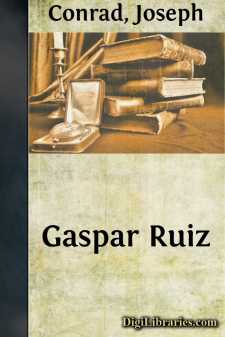Categories
- Antiques & Collectibles 13
- Architecture 36
- Art 48
- Bibles 22
- Biography & Autobiography 815
- Body, Mind & Spirit 144
- Business & Economics 28
- Children's Books 18
- Children's Fiction 14
- Computers 4
- Cooking 94
- Crafts & Hobbies 4
- Drama 346
- Education 58
- Family & Relationships 59
- Fiction 11835
- Games 19
- Gardening 17
- Health & Fitness 34
- History 1378
- House & Home 1
- Humor 147
- Juvenile Fiction 1873
- Juvenile Nonfiction 202
- Language Arts & Disciplines 89
- Law 16
- Literary Collections 686
- Literary Criticism 179
- Mathematics 13
- Medical 41
- Music 40
- Nature 180
- Non-Classifiable 1768
- Performing Arts 7
- Periodicals 1453
- Philosophy 65
- Photography 2
- Poetry 896
- Political Science 203
- Psychology 44
- Reference 154
- Religion 515
- Science 126
- Self-Help 85
- Social Science 83
- Sports & Recreation 34
- Study Aids 3
- Technology & Engineering 60
- Transportation 23
- Travel 463
- True Crime 29
Our website is made possible by displaying online advertisements to our visitors.
Please consider supporting us by disabling your ad blocker.
Some Reminiscences
by: Joseph Conrad
Categories:
Description:
Excerpt
Chapter I.
Books may be written in all sorts of places. Verbal inspiration may enter the berth of a mariner on board a ship frozen fast in a river in the middle of a town; and since saints are supposed to look benignantly on humble believers, I indulge in the pleasant fancy that the shade of old Flaubert—who imagined himself to be (amongst other things) a descendant of Vikings—might have hovered with amused interest over the decks of a 2000-ton steamer called the "Adowa," on board of which, gripped by the inclement winter alongside a quay in Rouen, the tenth chapter of "Almayer's Folly" was begun. With interest, I say, for was not the kind Norman giant with enormous moustaches and a thundering voice the last of the Romantics? Was he not, in his unworldly, almost ascetic, devotion to his art a sort of literary, saint-like hermit?
"'It has set at last,' said Nina to her mother, pointing to the hills behind which the sun had sunk. . . ." These words of Almayer's romantic daughter I remember tracing on the grey paper of a pad which rested on the blanket of my bed-place. They referred to a sunset in Malayan Isles and shaped themselves in my mind, in a hallucinated vision of forests and rivers and seas, far removed from a commercial and yet romantic town of the northern hemisphere. But at that moment the mood of visions and words was cut short by the third officer, a cheerful and casual youth, coming in with a bang of the door and the exclamation: "You've made it jolly warm in here."
It was warm. I had turned on the steam-heater after placing a tin under the leaky water-cock—for perhaps you do not know that water will leak where steam will not. I am not aware of what my young friend had been doing on deck all that morning, but the hands he rubbed together vigorously were very red and imparted to me a chilly feeling by their mere aspect. He has remained the only banjoist of my acquaintance, and being also a younger son of a retired colonel, the poem of Mr. Kipling, by a strange aberration of associated ideas, always seems to me to have been written with an exclusive view to his person. When he did not play the banjo he loved to sit and look at it. He proceeded to this sentimental inspection and after meditating a while over the strings under my silent scrutiny inquired airily:
"What are you always scribbling there, if it's fair to ask?"
It was a fair enough question, but I did not answer him, and simply turned the pad over with a movement of instinctive secrecy: I could not have told him he had put to flight the psychology of Nina Almayer, her opening speech of the tenth chapter and the words of Mrs. Almayer's wisdom which were to follow in the ominous oncoming of a tropical night. I could not have told him that Nina had said: "It has set at last." He would have been extremely surprised and perhaps have dropped his precious banjo. Neither could I have told him that the sun of my sea-going was setting too, even as I wrote the words expressing the impatience of passionate youth bent on its desire....












